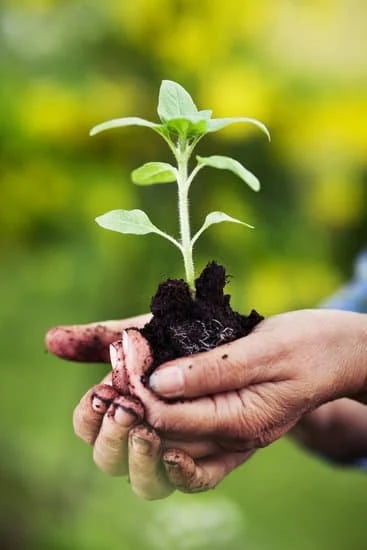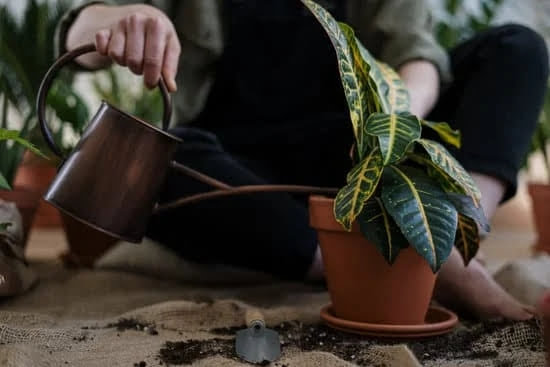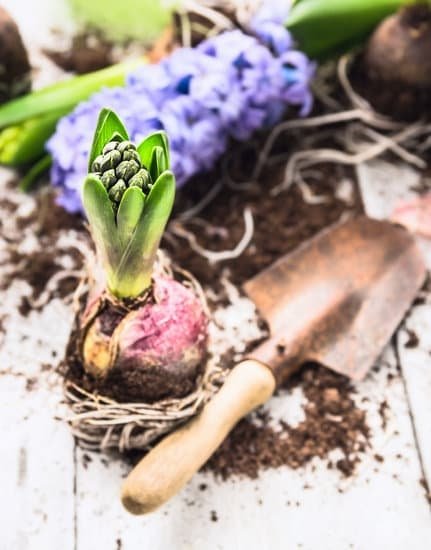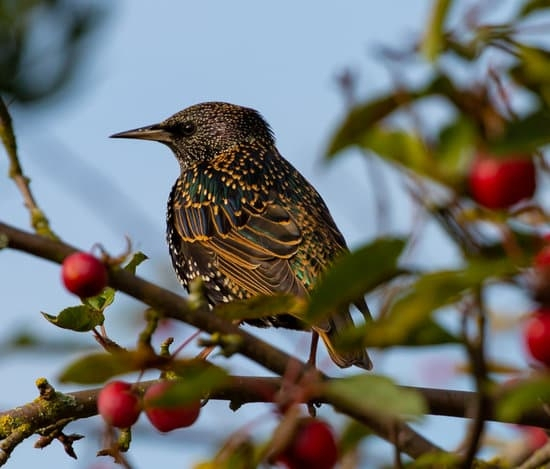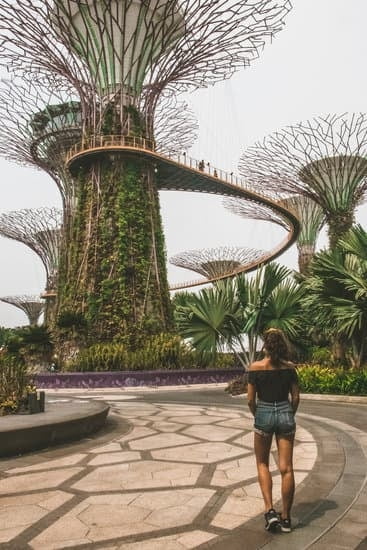Container Gardening Tips And Tricks
Container gardening is a fun and easy way to enjoy plants, and with the right tips and tricks, you can create a beautiful and thriving garden right in your own backyard. Here are a few tips to help you get started:
Choose the right plants. Not all plants are suitable for container gardening, so be sure to choose plants that are meant for small spaces. Herbs, succulents, and flowers are all great options, and they can be mixed and matched to create a beautiful and unique garden.
Not all plants are suitable for container gardening, so be sure to choose plants that are meant for small spaces. Herbs, succulents, and flowers are all great options, and they can be mixed and matched to create a beautiful and unique garden. Use the right soil.Container gardening requires soil that is specifically designed for this purpose. Be sure to use a good quality potting mix that will provide the right nutrients for your plants.
Container gardening requires soil that is specifically designed for this purpose. Be sure to use a good quality potting mix that will provide the right nutrients for your plants. Size matters. When choosing a container for your garden, be sure to pick one that is large enough to accommodate the plants you want to grow. You don’t want to overcrowd your plants, so choose a container that is big enough to give them plenty of room to grow.
When choosing a container for your garden, be sure to pick one that is large enough to accommodate the plants you want to grow. You don’t want to overcrowd your plants, so choose a container that is big enough to give them plenty of room to grow. Water regularly. Container plants need regular watering, so be sure to check on them often and water them when necessary. You may also want to invest in a self-watering container to make life a little easier.
Container plants need regular watering, so be sure to check on them often and water them when necessary. You may also want to invest in a self-watering container to make life a little easier. Add fertilizer.Container plants need fertilizer too, so be sure to add a little to their soil every few weeks. This will help them to grow healthy and strong.
With these tips in mind, you can create a beautiful and thriving container garden right in your own backyard. Be sure to experiment with different plants and combinations to find the perfect garden for you.
Http Www.Thelifestylelist.Tv Single-Post 2016 06 13 Home-Gardening-Tips-Tricks
-And-Tools
When it comes to gardening, there are a lot of tips, tricks, and tools that you can use to make the process a little bit easier. Whether you are a beginner or a seasoned pro, the following tips will help you get the most out of your gardening experience.
One of the most important things to remember when gardening is to wear sunscreen and a hat. The sun can quickly cause you to get a sunburn, which can be painful and can potentially damage your skin. By wearing sunscreen and a hat, you can protect yourself from the sun’s harmful rays.
Another important thing to remember when gardening is to stay hydrated. When you are out in the sun working, you can quickly become dehydrated, which can be dangerous. By drinking plenty of water, you can stay hydrated and avoid getting dehydrated.
When gardening, it is important to use the right tools. If you are using the wrong tools, you can end up injuring yourself or damaging your plants. The following are a few of the most important gardening tools to use:
-Gardening gloves: Gardening gloves can protect your hands from getting scratched or injured by thorns or other sharp objects.
-Shovel: A shovel can be used to dig trenches, remove debris, and more.
-Trowel: A trowel can be used to dig holes, transplant plants, and more.
-Hoe: A hoe can be used to break up the soil, remove weeds, and more.
-Rake: A rake can be used to smooth out the soil, remove debris, and more.
-Pruners: Pruners can be used to cut branches and stems.
-Weed eater: A weed eater can be used to remove weeds and trim grass.
-Mower: A mower can be used to cut the grass.
When using these tools, it is important to be careful and to use the right technique. If you are not familiar with how to use a particular tool, be sure to research it online or ask a friend or neighbor for help.
In addition to using the right tools, it is also important to use the right techniques. The following are a few of the most important gardening techniques to know:
-Weeding: Weeding is the process of removing weeds from the garden. To do this, use a hoe to break up the soil, then use a rake to remove the debris.
-Transplanting: Transplanting is the process of moving a plant from one location to another. To do this, use a trowel to dig a hole in the new location, then place the plant in the hole and fill it in with soil.
-Mulching: Mulching is the process of adding a layer of material to the top of the soil. This can help to protect the soil from erosion, keep the soil moist, and more.
-Fertilizing: Fertilizing is the process of adding fertilizer to the soil. This can help to improve the soil quality and help plants to grow better.
-Watering: Watering is the process of giving plants water. This is important for keeping plants healthy and hydrated.
Gardening Tips Gardening Tips And Tricks
For Beginners
The world of gardening can be a fun and rewarding experience, but it can also be a bit daunting for beginners. If you are just starting out in gardening, here are a few tips and tricks to help you get started.
1. Start small. When you are first starting out, it is best to start small. Don’t try to take on too much at once. Start with a few plants and see how you like it.
2. Get to know your plants. It is important to know the needs of your plants in order to give them the best care. Different plants require different amounts of water, sun, and fertilizer.
3. Use the right tools. Using the right tools can make gardening a lot easier. For example, a trowel can be used to dig holes for planting, and a watering can can be used to water plants.
4. Keep records. Keep track of what plants you plant, where you planted them, and how they are doing. This will help you keep track of what is working and what isn’t, and it will also help you plan for future gardens.
5. Be patient. Gardening can be a slow process, so be patient and allow your plants time to grow.
These are just a few tips to help beginners get started in gardening. With a little practice, you will be able to create beautiful gardens that will bring joy to your home.
Organic Gardening Tips And Tricks
Organic gardening is a great way to get in touch with nature and to enjoy the benefits of homegrown produce. It can also be a bit of a challenge, especially if you are new to it. Here are some tips to help you get started with organic gardening.
Choose plants that are suited to the climate. If you live in a hot climate, you should plant peppers, tomatoes and eggplants. If you live in a colder climate, plant cabbage, broccoli and kale.
To make your garden more productive, plant a variety of plants. If you plant the same thing over and over again, you will get the same results. If you mix things up, you will get a variety of plants in your garden, which will make it more productive.
If you have a problem with slugs or snails, try using a beer trap. Take a small jar and bury it so that the mouth of the jar is level with the soil. Fill the jar with beer until it is about an inch from the top. The slugs and snails will be attracted to the beer and will fall into the jar. You can then dispose of them when you are ready.
To make a homemade weed killer, mix equal parts white vinegar and water. Add a little dish soap to help the solution stick to the weeds. Spray the solution on the weeds on a sunny day and they will die within a few days.
If you are growing vegetables in your garden, make sure that you water them regularly. Vegetables need a lot of water to grow correctly, and if you do not water them, they will not grow very well. If you do not have time to water your vegetables every day, you can install a sprinkler system to do it for you.
If you are growing vegetables in your garden, make sure that you water them regularly. Vegetables need a lot of water to grow correctly, and if you do not water them, they will not grow very well. If you do not have time to water your vegetables every day, you can install a sprinkler system to do it for you.
If you are growing vegetables in your garden, make sure that you water them regularly. Vegetables need a lot of water to grow correctly, and if you do not water them, they will not grow very well. If you do not have time to water your vegetables every day, you can install a sprinkler system to do it for you.
If you are having trouble getting your garden to grow, add some manure to it. Manure will add nutrients to the soil that will help your plants grow. It is best to use manure that is organic and has not been treated with chemicals.
If you are having trouble getting your garden to grow, add some manure to it. Manure will add nutrients to the soil that will help your plants grow. It is best to use manure that is organic and has not been treated with chemicals.
If you are having trouble getting your garden to grow, add some manure to it. Manure will add nutrients to the soil that will help your plants grow. It is best to use manure that is organic and has not been treated with chemicals.
If you are having trouble getting your garden to grow, add some manure to it. Manure will add nutrients to the soil that will help your plants grow. It is best to use manure that is organic and has not been treated with chemicals.
Vegetable Gardening Tips And Tricks For Beginners
Starting a vegetable garden can be a daunting task, but it can also be a very rewarding experience. If you are a beginner, here are some tips and tricks to help you get started:
1. Choose the right location
The first step in starting a vegetable garden is to choose the right location. You want to choose a spot that receives plenty of sunlight and has good drainage.
2. Choose the right plants
Not all vegetables are created equal. Some vegetables are better suited for beginners than others. Some of the best vegetables for beginners include lettuce, tomatoes, and cucumbers.
3. Amend the soil
Before you plant your vegetables, you need to amend the soil. Amend the soil by adding compost or manure. This will help improve the soil quality and help your vegetables grow healthy and strong.
4. Water regularly
One of the most important things you can do to help your vegetables grow is to water them regularly. Make sure to water your vegetables every day, especially during hot weather.
5. Use fertilizer
Fertilizer is another important thing you can use to help your vegetables grow. Fertilize your vegetables once a week with a high-quality fertilizer.
6. Harvest regularly
One of the best things about growing your own vegetables is being able to harvest them fresh from your garden. Make sure to harvest your vegetables regularly so you can enjoy them fresh.

Welcome to my gardening blog! I am passionate about plants and enjoy sharing my knowledge and experiences with others. In this blog, I will write about everything related to gardening, from tips on how to get started to updates on my own garden projects.

